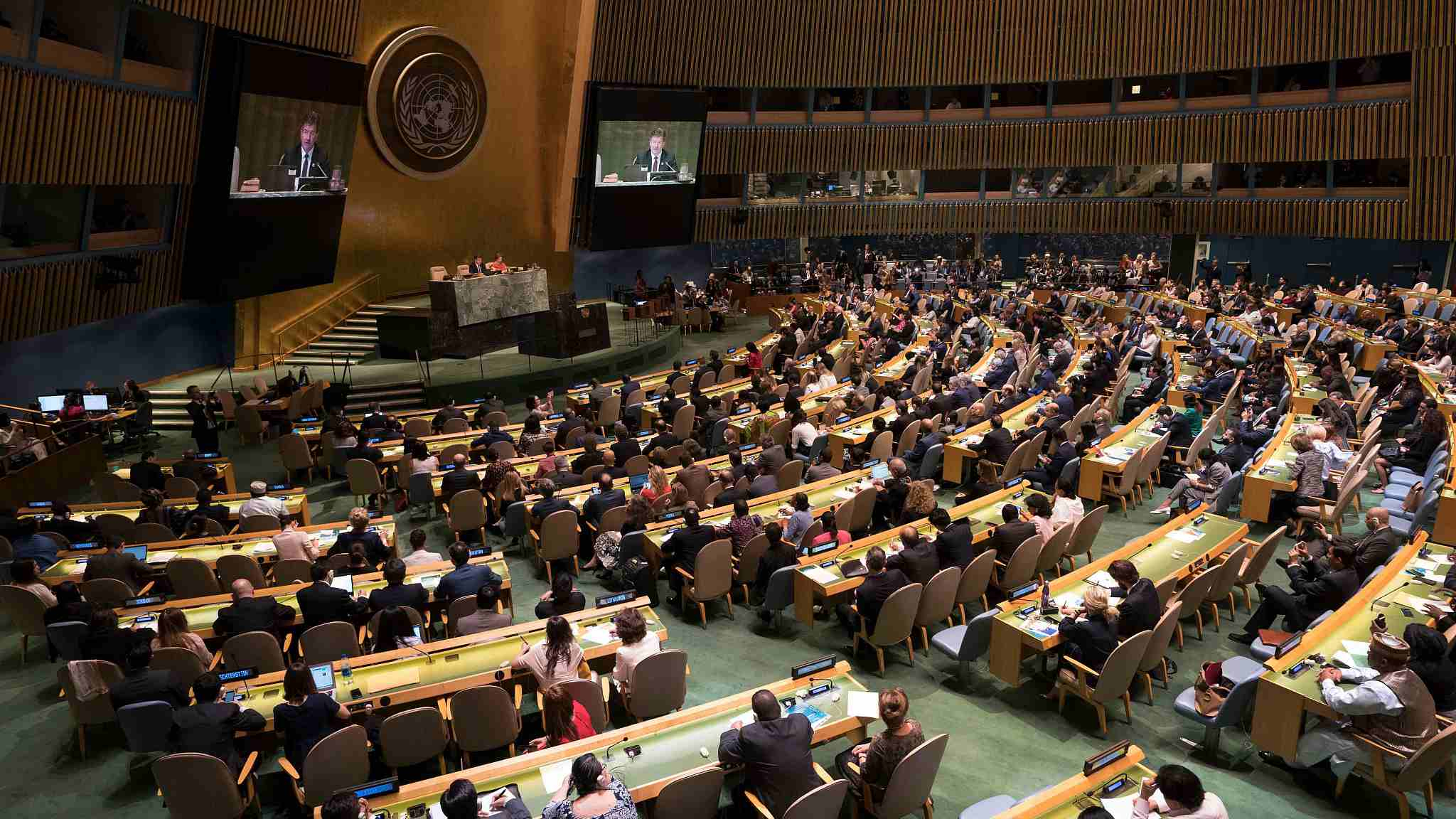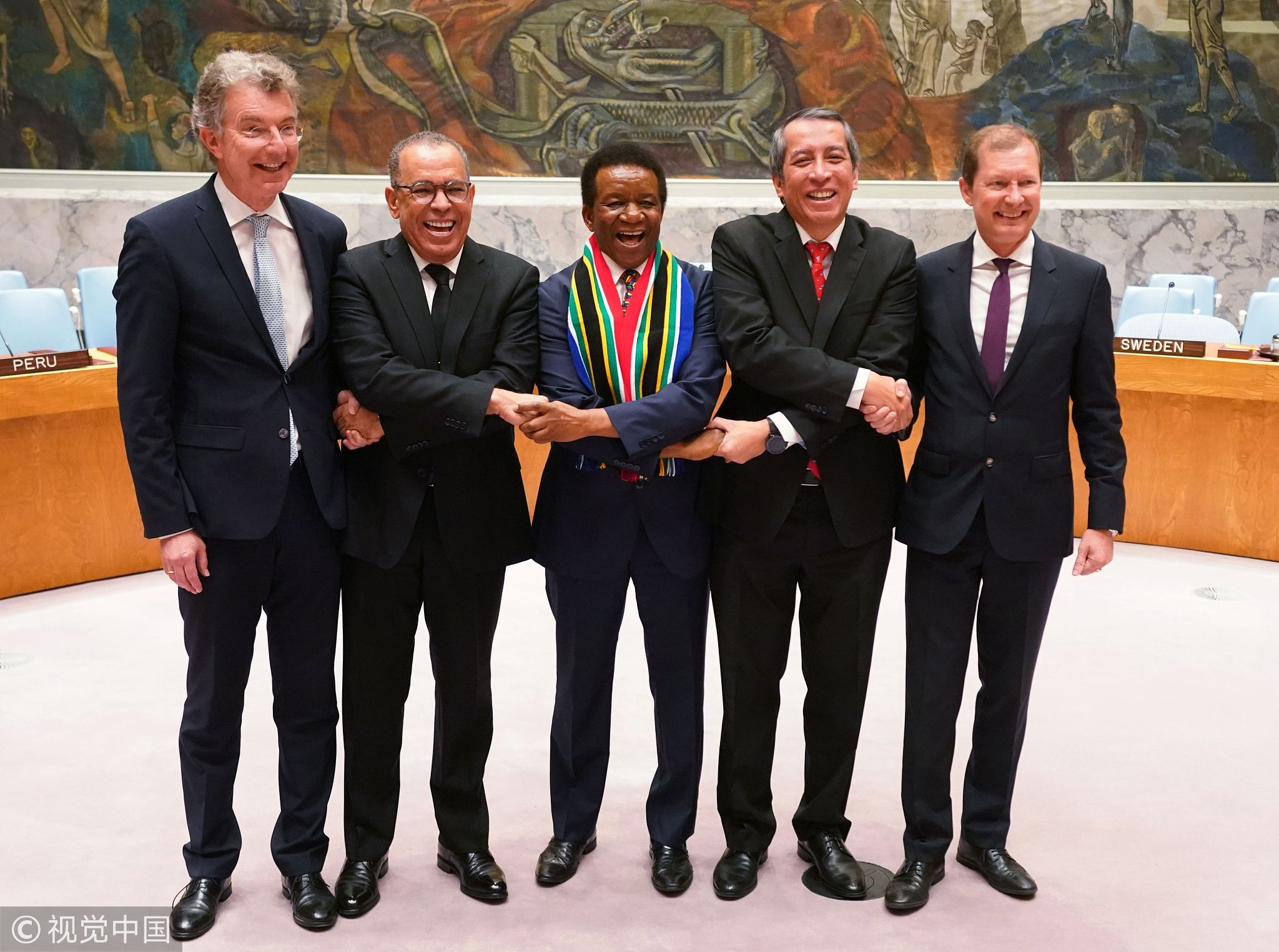
Politics
09:04, 09-Jun-2018
UN Security Council elects five members for 2-year term
CGTN

The United Nations General Assembly voted on Friday to elect Germany, Belgium, South Africa, the Dominican Republic and Indonesia for a two-year term in the Security Council starting on January 1, 2019.
The council is the only UN body that can make legally binding decisions and has the power to impose sanctions and authorize the use of force.
Indonesia drew more votes than the Maldives in the contested election for one Asia-Pacific seat by 144 to 46, while the other four candidates ran unopposed. Uncontested candidates still need to win more than two-thirds of the overall General Assembly vote to be elected. There were 190 ballots in Friday’s vote.

UN Ambassadors from Germany, Christoph Heusgen; Dominican Republic, Francisco Antonio Cortorreal; South Africa, Jeremiah Nyamane Kingsley Mamabolo; Indonesia, Dian Triansyah Djani; and Belgium, Marc Pecsteen de Buytswerve; pose for photos on the floor of the Security Council afetr a General Assembly meeting to elect the five non-permanent members of the Security Council June 8 at the United Nations in New York. /VCG Photo
UN Ambassadors from Germany, Christoph Heusgen; Dominican Republic, Francisco Antonio Cortorreal; South Africa, Jeremiah Nyamane Kingsley Mamabolo; Indonesia, Dian Triansyah Djani; and Belgium, Marc Pecsteen de Buytswerve; pose for photos on the floor of the Security Council afetr a General Assembly meeting to elect the five non-permanent members of the Security Council June 8 at the United Nations in New York. /VCG Photo
Germany received 184 votes, Belgium had 181, South Africa got 183, and the Dominican Republic had 184 after one round of voting. Regional groups generally agree upon the candidates to put forward and competitive races are increasingly rare.
In a typical year the General Assembly elects five new members, which join the five elected the previous year and the five permanent, veto-power seats: the United States, Britain, France, China and Russia.
The five members giving up their seat at the end of this year are the Netherlands, Sweden, Ethiopia, Bolivia and Kazakhstan.
The five seats not up for election this year are currently held by Ivory Coast, Equatorial Guinea, Kuwait, Peru and Poland.
Source(s): Reuters

SITEMAP
Copyright © 2018 CGTN. Beijing ICP prepared NO.16065310-3
Copyright © 2018 CGTN. Beijing ICP prepared NO.16065310-3